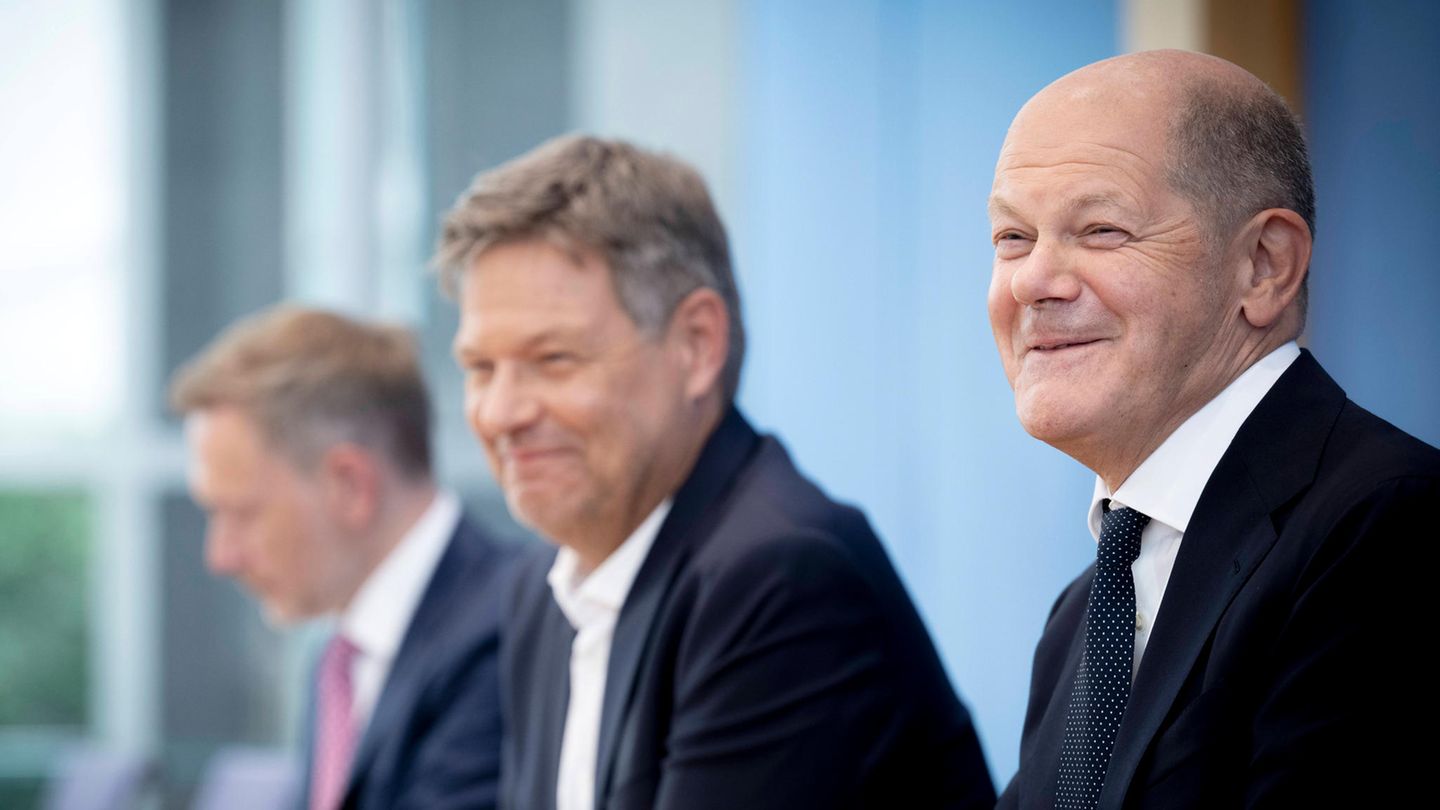The summer break is over – now the budget discussions are underway in the Bundestag. These savings are already becoming apparent.
If the members of the Bundestag feel refreshed at the end of the summer break, this is unlikely to last for too long – because there is a lot of work to do before they get back into work: starting on Tuesday, the draft budget for 2025 will be discussed for a whole week of sessions. Only three weeks ago, after a long wrangling, the government agreed on the final details. But a financial hole remained.
What are the key figures for the 2025 budget?
Expenditure totaling 488.61 billion euros is planned – slightly less than currently planned for this year. Of this, the government classifies around 81 billion euros as investments. To finance this, the federal government needs 51.3 billion euros in fresh loans, slightly more than in 2024. The requirements of the debt brake are thus met.
As usual, the largest individual budget is that of the Ministry of Labour and Social Affairs – mainly because of pension payments – with 179.3 billion euros. That is more than a third of the total budget. The Ministry of Defence is in second place by a long way with 53.3 billion. This does not include the special fund of the Bundeswehr. The Federal Ministry with the smallest budget is the Ministry of Justice with just over a billion euros.
What is the financial gap all about?
This is a so-called global spending cut of twelve billion euros. This means that this money must be saved in 2025 – but it is not specified how exactly this will happen. The government assumes that the amount will be raised simply because the budgeted expenditure will not be incurred. It also expects the gap to be further reduced before the budget is passed in the Bundestag – due to an improved economic situation and “updating needs”. What exactly this means is still unclear.
What is more or less money planned for than in 2024?
The biggest increase is in the budget of the Ministry of Transport and Digital: it is increasing by 5.2 billion to 49.7 billion euros. In particular, spending on broadband expansion is being significantly increased. More money is also earmarked for the maintenance and expansion of railway lines. The Federal Ministry of Defense will receive around 1.3 billion euros more than in 2024, and the Ministry of Education will receive around 833 million.
The biggest deficit in absolute terms is planned for the Ministry for Development – the budget is shrinking by around 937 million euros. Among other things, cuts are being made in bilateral development cooperation. The Ministry for Economic Affairs and the Foreign Office will each have to make do with a good 830 million less. At the Foreign Office, the budget for humanitarian aid in particular is shrinking. At the Ministry for Economic Affairs, the cuts are spread quite widely; among other things, climate protection spending is falling by a good 100 million euros.
Why did it take so long for the budget to reach the Bundestag?
The cabinet had already approved the budget plan in mid-July – but the financial gap was still 17 billion euros. The government declared at the time that the gap should be reduced before the draft was submitted to the Bundestag. It had already considered a number of measures to this end, but Federal Finance Minister Christian Lindner (FDP) raised legal concerns about these shortly afterwards. So negotiations were held again – until an agreement was reached and the cabinet made a new decision in mid-August.
What happens next?
At the same time as the Bundestag, the more than 3,300-page draft budget was also sent to the Bundesrat. The state chamber will formulate a statement on the proposal. In the Bundestag, the upcoming week will be followed by a lot of work in the budget committee, which will discuss the budget in detail and make changes in many places. The revised draft budget will only be adopted a few weeks before the end of the year.
Source: Stern
I have been working in the news industry for over 6 years, first as a reporter and now as an editor. I have covered politics extensively, and my work has appeared in major newspapers and online news outlets around the world. In addition to my writing, I also contribute regularly to 24 Hours World.




